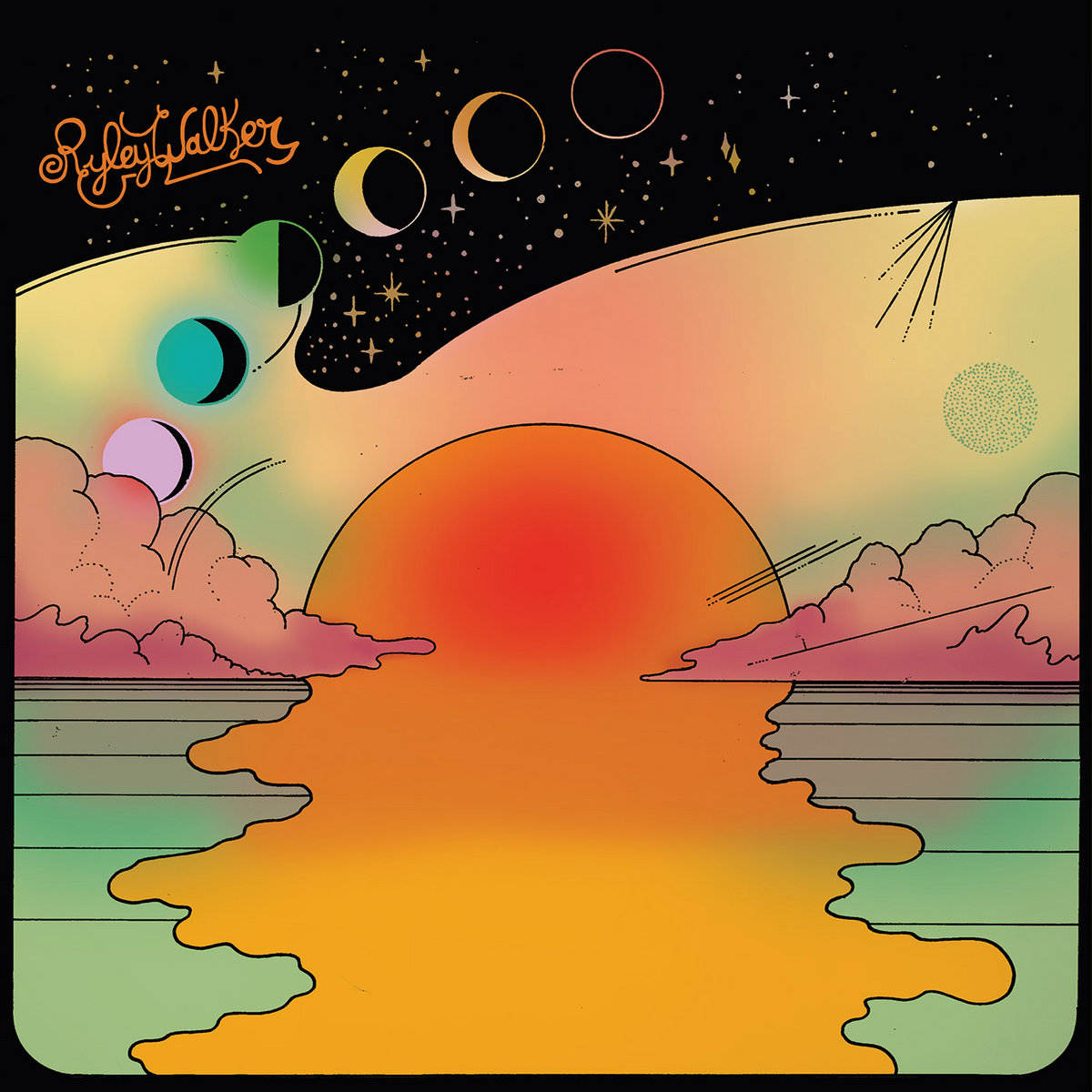Golden Sings that Have Been Sung
Ryley Walker
Dead Oceans 2017
Listen on Spotify
Guitar savant. Petulant and unserious. Genius. Each is a word or phrase describing Ryley Walker, a musical wunderkind from outside of Chicago whose second full length album somehow encapsulates the praises and critiques that have followed him throughout his career. At its best it thrives, with Walker’s intricate guitar play coalescing with a wide, beautiful array of instruments and moods. At its worst, his risks don’t pay off, his jokes fall flat, and he inexplicably strays from convention and areas of strength. Thankfully, the patient critic is rewarded; each additional listen points to another reason to respect his prowess. Or, hell, maybe even love him.
The thought
process that a young musician faces when creating a second album is straightforward,
albeit daunting, and the unenviable task of having to cope with an identity
(either establishing, upholding, or improving) can illicit any number of
responses. The sophomore effort, Golden Sings that Have Been Sung, shows
flashes of all of the above, but perhaps most importantly offers a fascinating
parallelism with Walker’s worldview- a duality of seriousness and triviality,
control and helplessness; a competition between intricate beauty and crass
ruggedness. This implicit imperfection, shown to be far more prominent than in
his debut album, features throughout in the form of an expansion of Walker’s
raspy singing voice. The same can be said with the introduction of edgy,
grunge-heavy guitar effects in tracks like “Sullen Mind,”, a standout. This
marks the most concerted effort yet for Walker to diversify his sound and avoid
being pigeon-holed as a typical finger-picking blues/folk guitar player.
Boldly, the
eight-song album begins with the best track Walker has ever recorded, purposely
titled, “The Halfwit in Me.” A stunning ballad of failures and
could-have-beens, the song is underscored by the typically adept melody of
expressive guitars, exploding forward from a deliberate attempt at
diversification and experimentation of sound. Varied influences of jazz, world
music, and psych-rock are a precursor to a continued element of the remainder
of the record. Lyrically, the first two songs establish the pairing of
opposites that follow Walker around the album. In this case, Walker juxtaposes
a hesitant, uncertain self with an unapologetically confident one. “A Choir
Apart” begins with a warning of stubbornness “heads up for this joker/ hand on
the heart/ pledge to a false flag,” and finishes with much the same “Golden
sings that have been sung/ wise ass wisdom, wasted on the young.”
As impressive
and intriguing as the album begins, the momentum is lost by a drastic shift
downward in pace, serving only to highlight two of Walker’s weaknesses: crawling
speed and bold analogy. And, thus, the album finishes with alternations of
head-scratching shortcomings and sparkling talent. Among the low points are
lines like “Funny thing she said to me/ I could see you giving me a child” and “I’m
playing footsie with Jesus”, each feeling awkward and out of context. Herein
lies the difficulty with risk and boldness: it doesn’t always pan out. While
there is certainly value in efforts to diversify one’s craft, speed and
songwriting in this case, Walker’s gifts of rhythm and tempo are too good to
ignore, and it’s difficult not to wonder what a more consistent sense of
urgency might have yielded.
Writing off the
album as a dud would be a bad, bad, mistake, and he leaves no room to wonder
with the dense, lush, and aforementioned “Sullen Mind”, a deeply personal tune
that shines light on the dark places inside his mind, devoid of hope and prone
to disappointment. The repetition of “And with a sullen mind, I’m out of here”
is soon washed away by two climaxes of full-blown, eyes closed, head-nodding psychedelia.
Two songs later, Walker, fittingly, returns to his roots with the kaleidoscopic
tunings of his acoustic guitar, singing of The Roundabout, a literal place of vast
memories, and a figurative nod at the tendency to search for the comfort and
familiar when all else is lost. His voice, usually unrefined, is clear and
smooth, shining in tandem with his meandering finger picking. The refinement is
rewarded, the virtuoso is validated, and everything feels like it’ll be
alright.
To finish things
off, Walker saves the most profound for last, putting together the puzzle that
makes the albums symbolism so impressive. Behind a backdrop of world music influences,
the slow pace finally seems fitting, and the slow progress is almost a
reflection on the journey undertaken. Whether that journey is the album, or
even the life of the listener, is entirely uncertain, and for good reason. The record’s
final words, “I’m beloved by the loved, who love to love/ I can still cut loose
on a weekday night,” cut to the core. The album ends with a shrug of the
shoulders. In light and darkness, it takes risks, has flying successes, and
comes up short. Nonetheless, it carries forward and tries again. Without
sounding zen or philosophical, we’re clued in to Walker’s views of the world.
Of what it means to feel alive. Or maybe not to take him so seriously.

This was really dope, I could obviously feel the influence of the author in your life. You keep improving, showing the audience how and why they could be feeling, not should be feeling, is most likely your biggest improvement. Keep it up man.
ReplyDelete-Remdawg